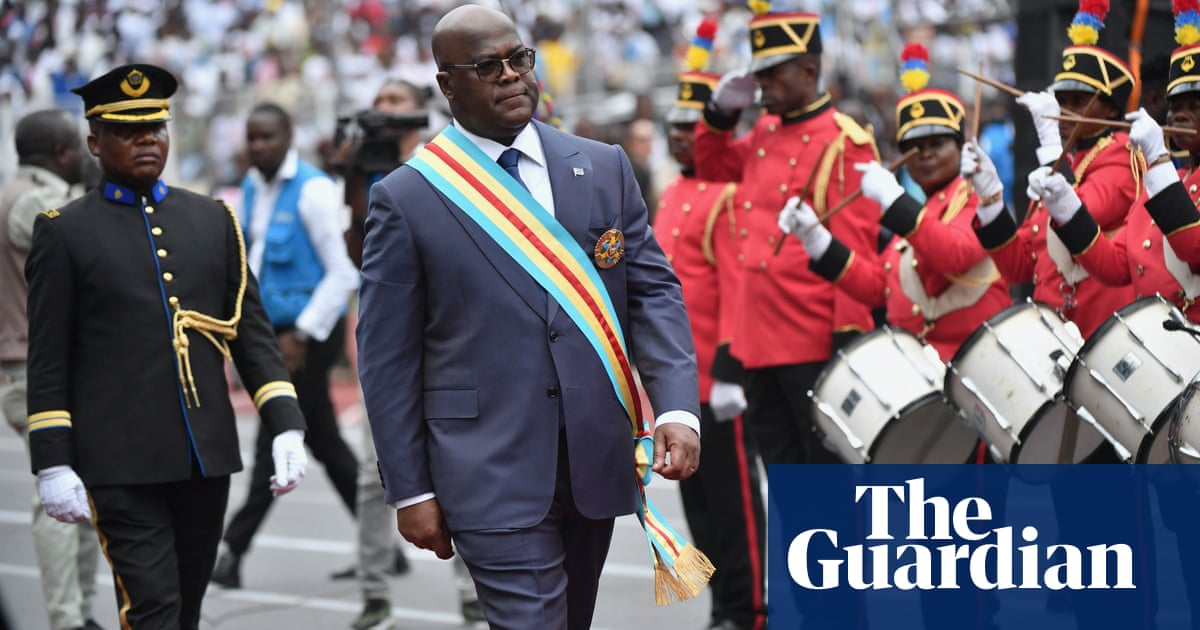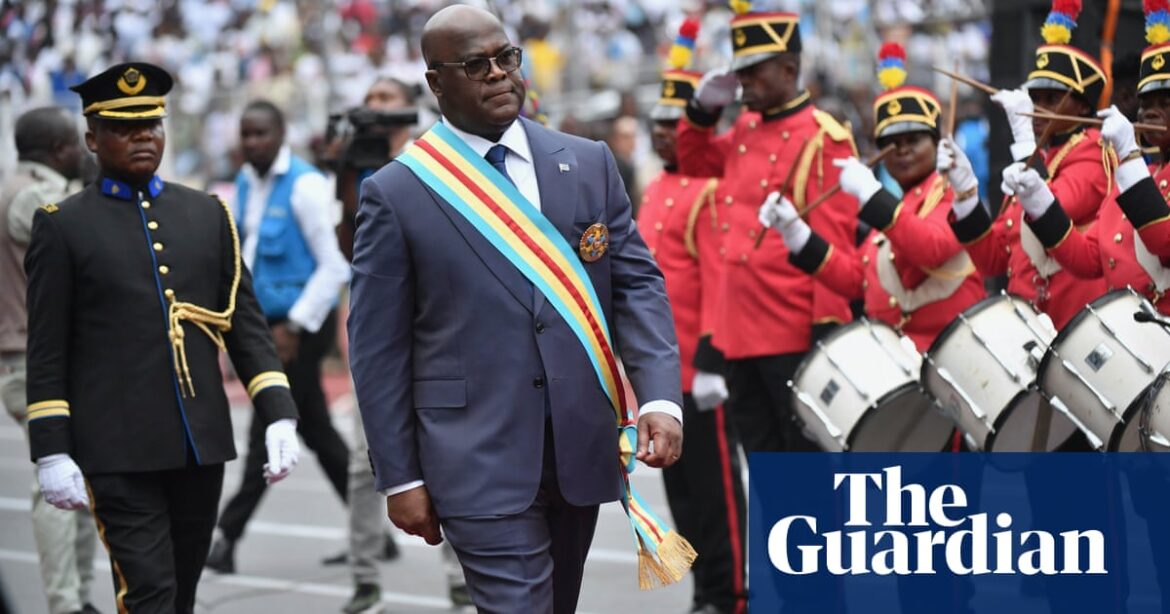
The president of the Democratic Republic of Congo, Félix Tshisekedi, has taken an oath to begin his second term in office following a resounding win in the December election. However, his opponents have rejected the results due to numerous irregularities.
The authorities have recognized that there were issues, but they have rejected accusations of election fraud. This tense stalemate is reminiscent of past conflicts over elections that have sparked protests in the second largest country in Africa. On Saturday, demonstrations erupted in two cities in the eastern region.
Tshisekedi was sworn in as the new leader in Kinshasa, the capital, in front of a crowd of enthusiastic supporters, government representatives, African leaders, and foreign diplomats from countries such as the United States, China, and France.
In his address, he recognized the nation’s aspirations for improved living standards and financial prospects. Approximately 62% of the Congo’s population of 100 million struggle to survive on less than one dollar per day.
“I understand your expectations,” he stated. “One of the objectives for this upcoming five-year period is to generate additional employment opportunities.”
He pledged to significantly reorganize our security and defense systems, and to continue diplomatic actions in order to resolve the ongoing security crisis in the eastern provinces of the DRC.
His inauguration was celebrated with choirs performing Handel’s Messiah’s Hallelujah chorus, military bands marching, and a 21-cannon salute.
With armed military police deployed throughout the capital, there was no immediate sign that opposition supporters had heeded a call from two of Tshisekedi’s main opponents to protest against his re-election.
In the early hours, demonstrators in the eastern city of Beni created makeshift barriers and set fire to tires as a form of protest. The police were able to disperse the demonstration without any significant issues. Similar small protests occurred in Goma and other urban areas in the east, but were controlled by the extensive presence of security personnel.
The biggest organization in Congo that monitors elections, the National Episcopal Conference of Congo (CENCO), declared the presidential and legislative elections a “disastrous” event this week. The group based their statement on their own findings of fraud, mishandling of election materials, simultaneous voting, and other problems.
The electoral commission of the country has stated that any violations were minimal and did not impact the results of the elections, which they claim were ultimately fair and unbiased.
Numerous African and Western nations have acknowledged Tshisekedi’s win, concerned that any further conflict could disrupt the production and export of valuable minerals from the DRC, after the country’s top court rejected all official complaints.
On Saturday, opposition presidential candidate and Nobel peace prize winner Denis Mukwege expressed his disapproval of the lack of concern and surprising apathy displayed by international diplomacy.
The primary opponents of both him and Tshisekedi, such as Moïse Katumbi and Martin Fayulu, have declined to challenge the outcome in court due to concerns about the impartiality of state institutions. The government has denied their request for a complete redo of the election.
Source: theguardian.com



